
Review | 2015+ Hilux SR & SR5
Posted in Vehicle Reviews
Review | 2015+ Hilux SR & SR5
It’s been a decade since an all-new Hilux, and in that time countless iterations of Toyota’s ute have found homes in driveways across Australia.
At a time where its rivals have brought their A-Game to rejuvenating the ute section of their lineup, we got into the all-new Toyota Hilux to find out what’s changed in the ten years since the last time an all-new model rolled into showrooms.
Toyota has always been the ‘go-to’ brand for many car buyers. The Corolla is almost always included in a hatchback shopping list, the Camry is synonymous with mid-size sedans and the LandCruiser is the first name when heading into seriously off-road.
Similarly, the Hilux ends up as the inevitable comparison point for commercial utes, with others sometimes falling short, as the Toyota’s years atop the sales charts seems to suggest.
Initial Impression
The overall shape of the Hilux hasn’t changed dramatically, although it does appear sleeker than its predecessor thanks to a revised grille, and a generally more aerodynamic shape – but as with most Toyota’s, it won’t floor you with a dramatic change in appearance. In fact, the hardest time you’ll have locating it is in a carpark filled with Hiluxes, which will inevitably be the case in a few years when everyone has one.
Sitting inside a Hilux has a reliable comfort about it. Everything is where you would want it to be, although the major addition to the new Hilux is the 7-inch ‘iPad’-like touchscreen, which dominates the dashboard. The operating system seems to be a mild upgrade of the previous software – but actually houses handy new features such as Toyota Link, which can find cheap fuel, the nearest coffee shop, or even call up Toyota Help to activate your roadside assist, get an operator to help you with directions if you’re hopelessly lost or call your Toyota dealer if you need further help with your vehicle.
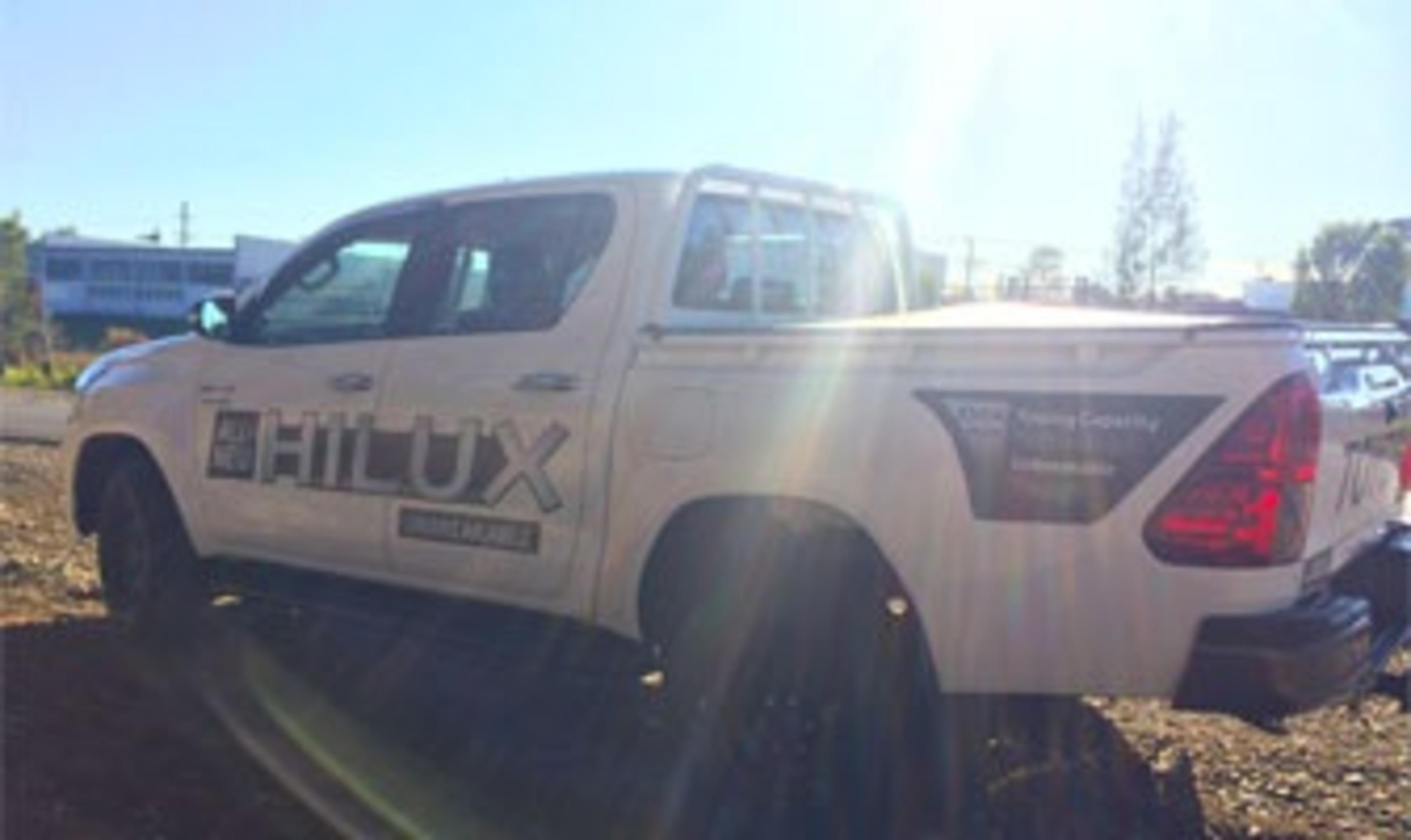
Driveability
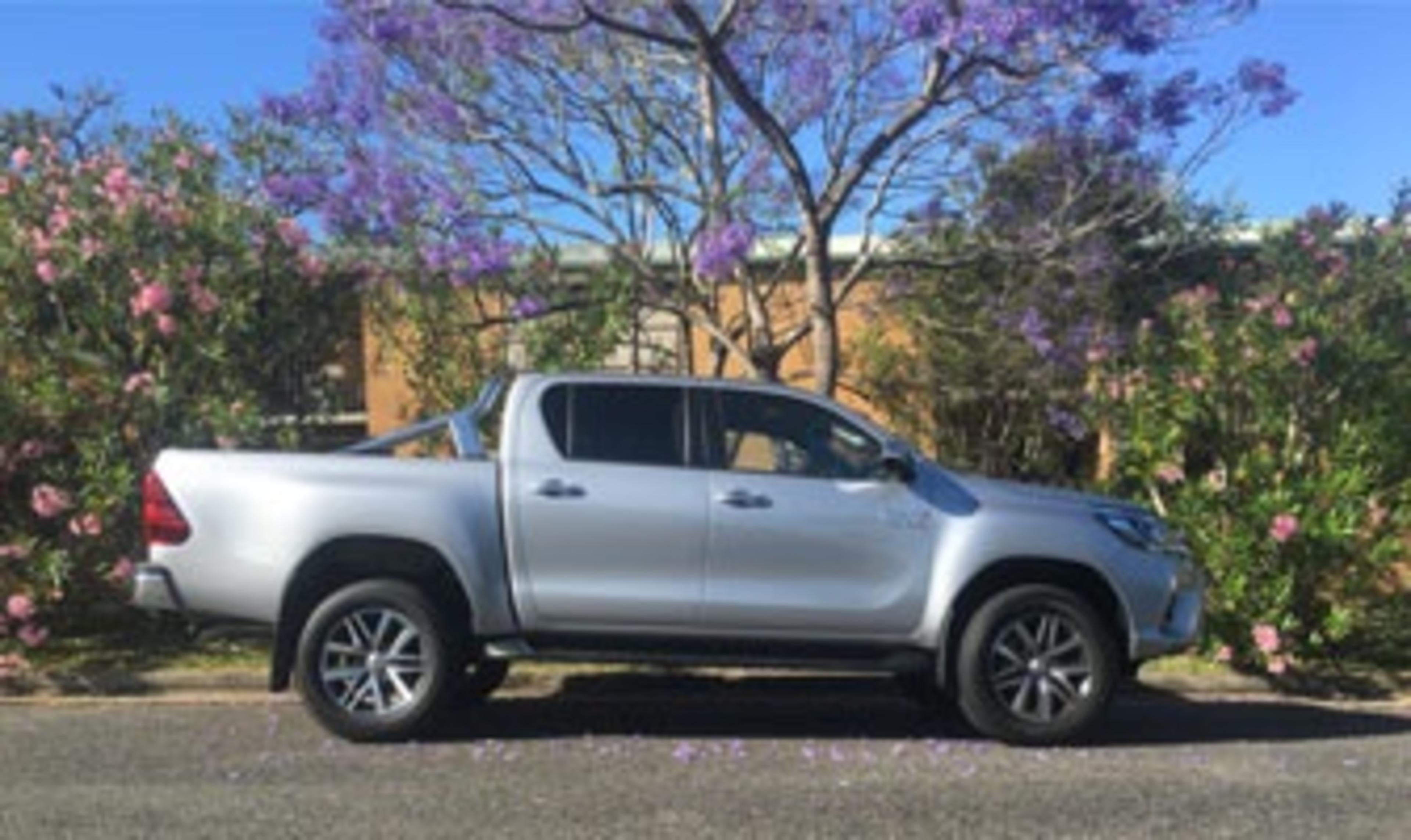
On the road, the Hilux shows what has changed. The chassis has been revised for better handling, and a choice of four engines (two retuned petrols and two new diesels) are a boon for economy and performance on the road.
In the SR and SR5 variants tested, the 2.8L diesel keeps the Hilux going along nicely, with an emphasis on low down torque. Acceleration is fairly quick, and on the road it’s able to keep pace with traffic, with a good amount of feedback from the tyres and steering, which has been tightened over the last model to avoid the vagueness associated with unloaded utes. Underneath, the suspension has been revised even further, with a double wishbone set up at the front – which is a lifesaver when in two-wheel drive, because it provides a smoother ride over bumps and potholes than the leaf-spring suspension over the back wheels, which is put in nearly all commercial utes because of it’s mechanical simplicity and durability when carrying heavy loads.
In the 4x4 models, the Hilux can be switched from 2WD to low- or high-range 4WD electronically through a switch, and the automatic wheel hubs will lock once you’ve put it into 4WD and get into a spot off-road. Toyota has recognised the need to make the Hilux even more capable off-road for Australians, and both the 520mm wheel articulation (left & right) and 279mm ground clearance (extra and double cabs) have been improved for bush bashing purposes in 4x4 models.
Overall, the Hilux improves in many ways what the last model got right: a tough work ute that can also double as the family truck, only this time the engineers have made it more comfortable on the road, and more capable off of it.
Liveability
In an average day, the Hilux is put through work that would probably eventually kill other, less durable cars, or at least wear them out. It is important, then, that its built to withstand not only the abuse of a work day, but still be comfortable outside of business hours – for when you need a vehicle that is more style than substance.
Thankfully, the Hilux has been retuned to provide everyday drivers with something that can go anywhere and do anything, whether it’s going down to the shops for groceries or picking up a whole new kitchen to put the groceries in.
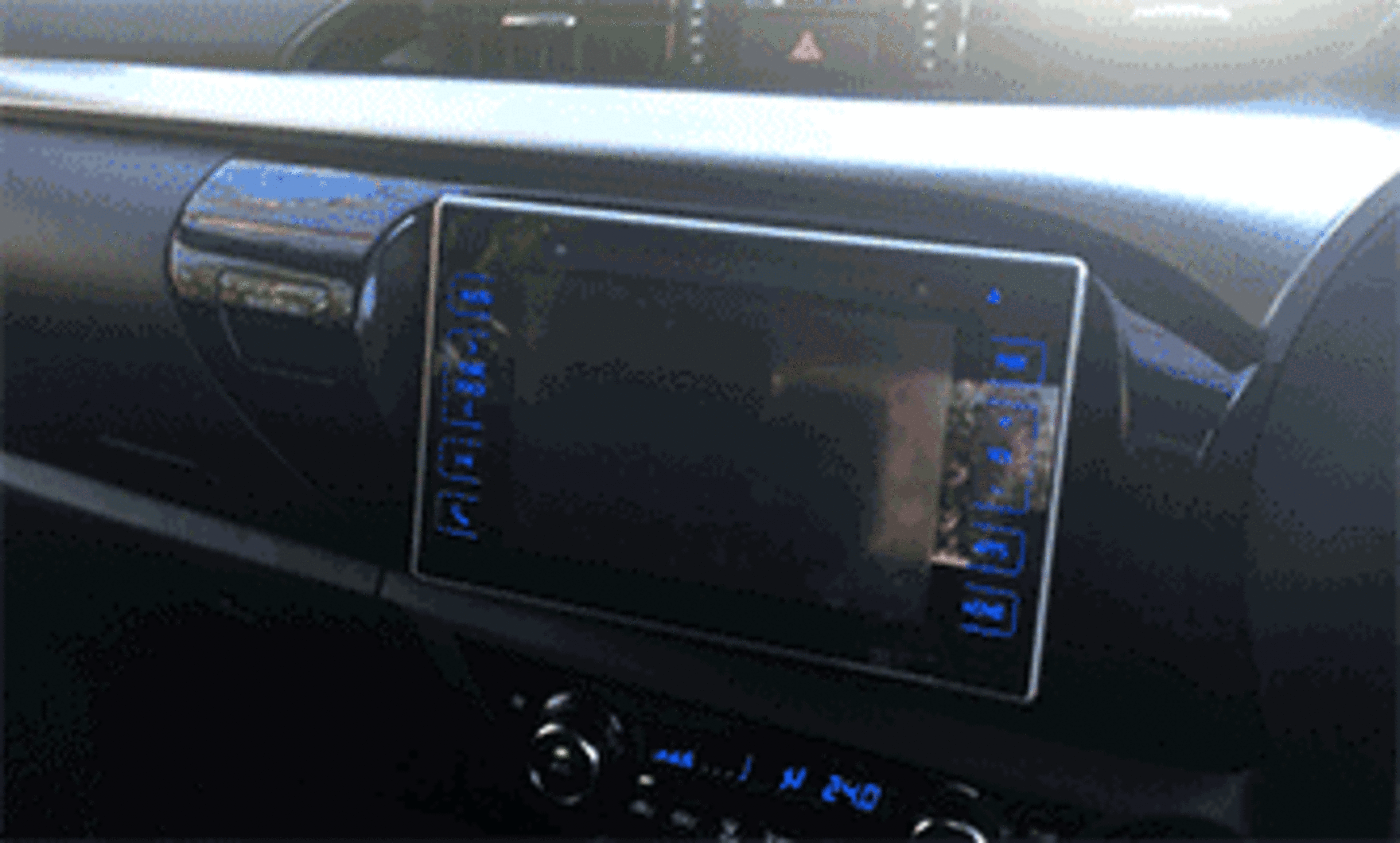
Driving around on paved roads, the Hilux is well settled with no pitching or skittishness when unloaded. 2WD mode is fine for city driving, and is good for conserving fuel, though it's not the worst drinker - coming into the low 7 litre mark per 100km in the 2.8L diesel.
Something to be aware of is the different braked towing limits on each model. 4x2 Hiluxes can only carry 2500kg behind them; while Hi-Rider models can tow 2800kg. 4x4 models get more complicated:
Got a V6 petrol (manual or auto) or the 2.4L diesel with an automatic transmission? You can tow 3 tonnes.If you have a 2.4L diesel with a manual transmission or the 2.8L diesel with an automatic, you can tow 3200kgs.The 2.8L diesel with a manual transmission is the only model that can pull the top figure of 3500kg, according to Toyota.
Of course, you probably can ask an automatic to carry 3500kg but the stress on the engine and transmission will be increased and you may not be covered under warranty if something goes bang when you decide to start pulling over the manufacturers recommendation. Plus, because of payloads and various other figures – loading the Hilux to the hilt may not even be legal if you’ve got all your passengers on board.
Safety has been beefed up on the Hilux, thanks to businesses increasingly requiring a five-star ANCAP rating as the minimum for the last couple of years. Seven airbags are standard across the Hilux range, including dual front and side; side curtain and drivers knee airbags. And because more and more utes are finding their way into driveways where little kids play, a reversing camera is standard across the range – which is a lifesaver not only when backing out in the mornings, but also around town.
However, the Hilux doesn’t come with live reversing camera guides (like the Corolla or Camry), or, more importantly front or rear parking sensors. It’s not as if the Hilux has the worst visibility for the front or back – far from it – but it would be nice to know approximately where you are so you’re not denting your brand new ute when driving around.
Cost
The new Hilux comes in a dizzying array of cabin and trim choices, with 4x2, 4x4 and, for the first time, 4x2 Hi-Rider models that find a happy medium. The three grades available are the entry level Workmate, mid-grade SR and the top spec SR5, and you can have it in single, extra or dual cab configurations with either a pick-up body style or a cab-chassis to fit your own tray arrangement.
A petrol, manual 4x2 Workmate cab-chassis will set you back $20,990 before tray fitment, registration and on-road costs. This goes up the range through engines, transmissions and cabin configurations to land at the flagship diesel, manual 4x4 SR5+ dual cab for $55,990. This includes all the bells and whistles of the SR5 as well as a leather interior trim. Automatic transmissions are a $2000 option, and premium paint is $550 for anything other Glacier White.
These prices are recommended retail only, excluding on-road costs. Please see Motorama Toyota for a driveaway price tailored to you.
Servicing costs are capped for the first six standard scheduled services at $180 for the first three years or 60,000km. Scheduled servicing intervals are set every six months or 10,000km.
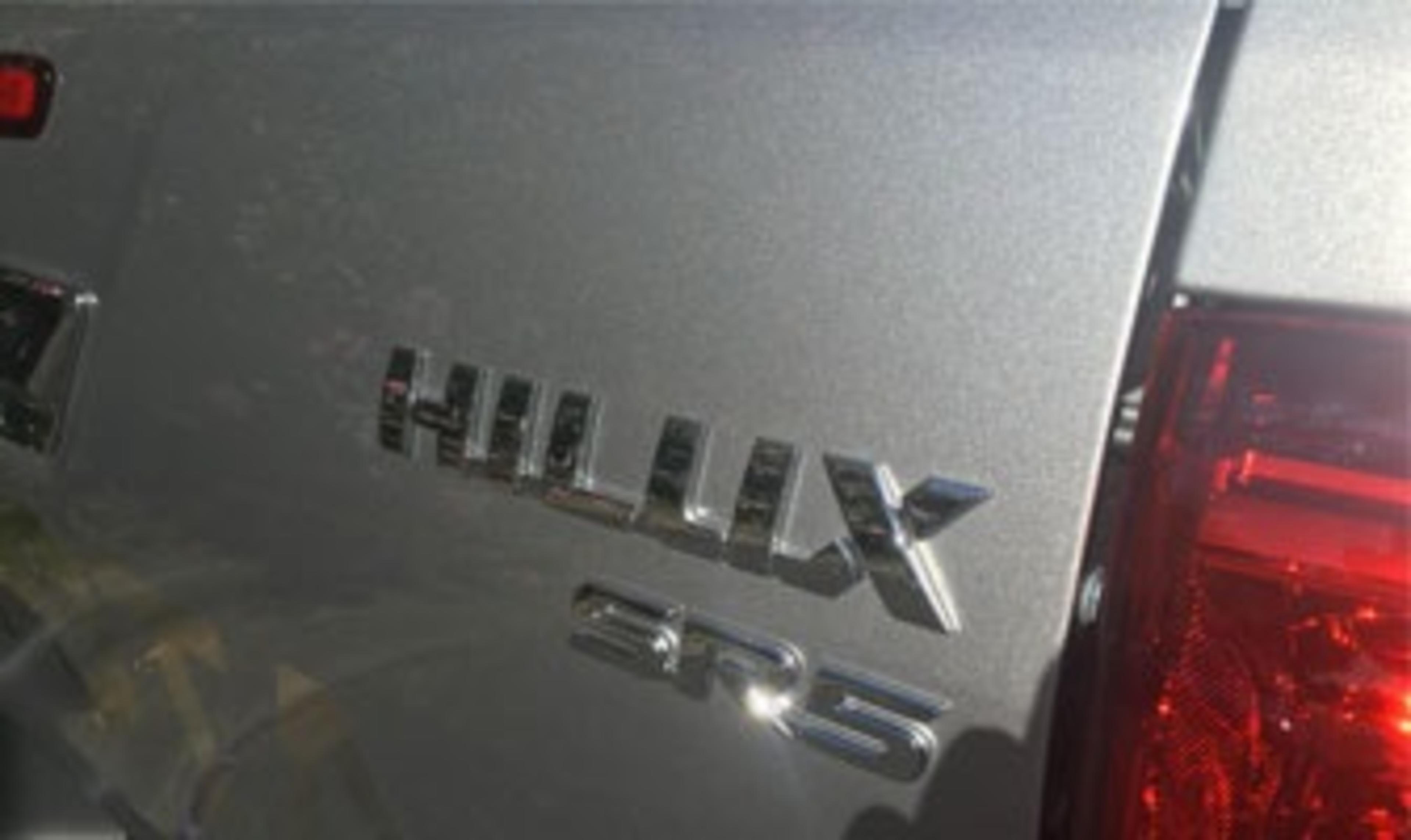
Conclusion
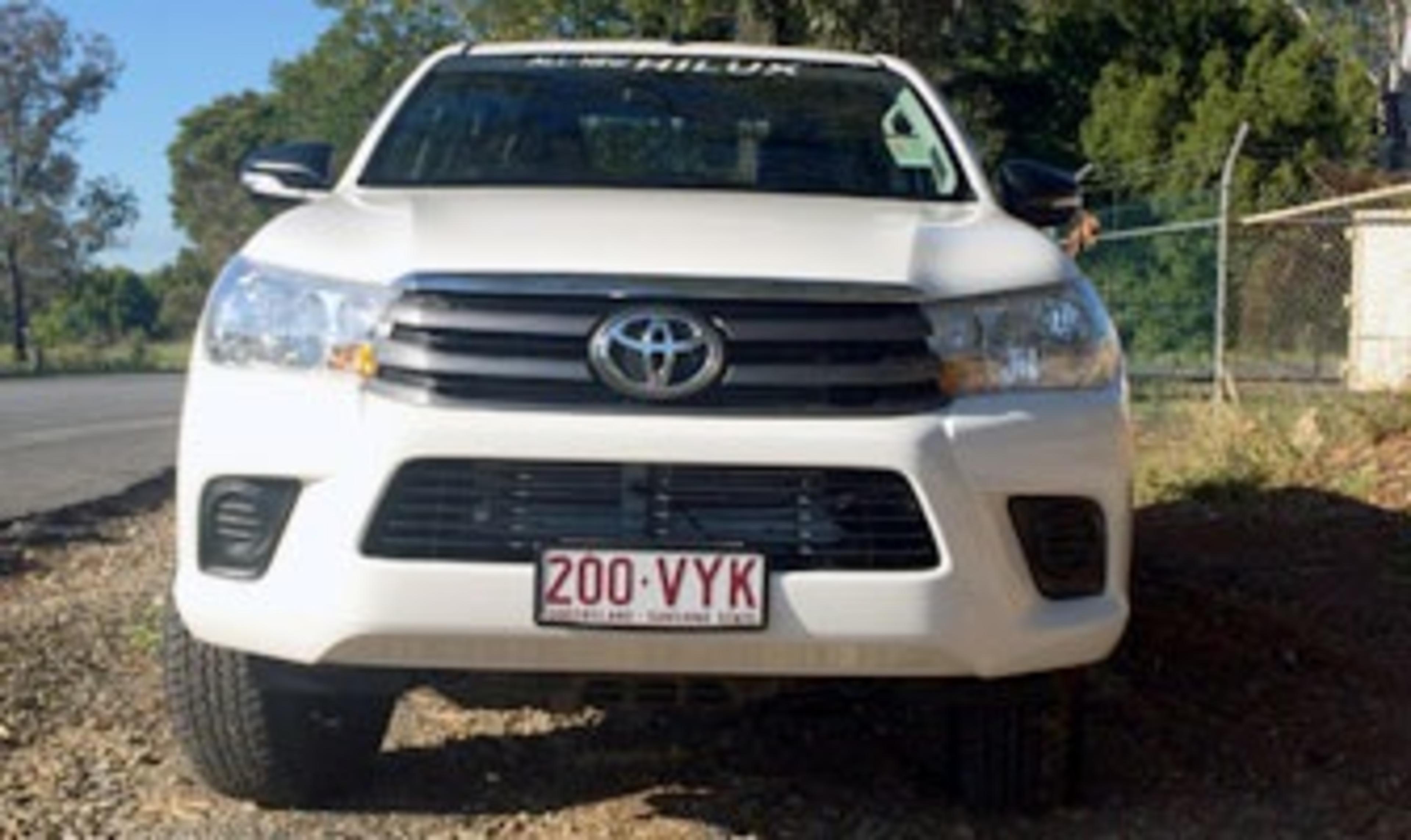
When the last Hilux was a new model, car buyers didn’t expect anything out of commercial vehicles than to be durable, practical and cheap to own and run. As long as it came through at the moment you needed it, it got the thumbs up.
The new Hilux has sharpened all the points of the last model, and has further improved on recent models from all manufacturers, which find that commercial vehicles need not be rough and ready as they once were. The Hilux, specifically, has been a vehicle that has recognised the dual purpose of utes for a while now and the latest model only improves on that.
To test the all new unbreakable Hilux, come into Motorama Toyota and test drive it for yourself at Moorooka or Browns Plains-Hillcrest

